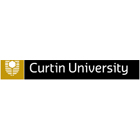Master of Teaching
Master of Teaching
The Master of Teaching is designed for people seeking to obtain an initial teacher education qualification in order to register as a teacher in Australia and/or in a country that recognises Australian teaching qualifications. The course may also be suitable for qualified teachers wishing to gain an additional formal qualification…
Categories
COURSE DESCRIPTION
The Master of Teaching is designed for people seeking to obtain an initial teacher education qualification in order to register as a teacher in Australia and/or in a country that recognises Australian teaching qualifications.
The course may also be suitable for qualified teachers wishing to gain an additional formal qualification (if needed) to convert to either Early Childhood, Primary or Secondary Education.
In the Master of Teaching you will gain advanced critical skills, knowledge and understanding concerning best practice in education, to meet the needs of today’s learners.
You will also have opportunities to undertake professional experience, culminating in a professional placement during your final year of study.
CHOOSE YOUR MAJOR
The Master of Teaching offers three majors:
Early Childhood Education
Primary Education
Secondary Education.
What jobs can the Teaching lead to?
The future of teaching
New communication technologies will continue to create immersive learning environments and increasingly impact teaching practices, while improving equity and access across education. Assisted learning technologies have the ability to transform learning across the range of education environments – special-needs, early childhood, primary, secondary and tertiary.
Curtin students graduate as highly qualified educators able to implement new technologies to provide contemporary learning experiences in classrooms and other learning environments.
What you’ll learn
Demonstrate cultural responsiveness and respectful engagement with local First Peoples and a diversity of cultures
Demonstrate a capacity for leadership through critical thinking and reflective and innovative practices based on local, national and international research and engagement in ongoing professional learning
Apply relevant theory and research to enhance the learning experiences and outcomes of learners from a diversity of backgrounds and of aspirations
Apply high-level discipline knowledges and understandings to demonstrate pedagogical capabilities, including planning and delivering effective teaching and learning experiences in the technologically enhanced learning environment, with demonstrated impact for all learners
Apply high-level discipline and well-developed pedagogical knowledges to generate and critically analyse diverse sources to support situated professional judgements when assessing and reporting on learning
Demonstrate effective and creative literacy and numeracy competencies across a range of professional contexts
Apply principles of social justice to create and manage positive, safe and ethical learning environments that support a diversity of learners to engage in meaningful learning
Communicate professionally with educational stakeholders, including colleagues, parents and carers, and engage collaboratively to build sustainable communities
REQUIREMENTS
You must have a bachelor degree or equivalent from a recognised institution, with at least one year of study in an area relating to the early years, or the primary or secondary curricula.
Applicants will also be required to engage in assessment of non-academic attributes in order to reflect on their suitability for teaching. Students will be responsible for meeting any costs associated with this assessment process.
You also need to meet a minimum standard of English Language Proficiency, as you are required to teach others in English during your professional experience placements.
Certificate in Advanced English (CAE): Grade C; and Pearson Test of English Academic: 60. IELTS Academic (International English Language Testing System): Writing, Reading: 7.0; Speaking and Listening: 8.0; Overall band score: 7.5; TOEFL (Test of English as a Foreign Language): 79 Overall; Reading 13 Listening 13 Speaking 18 Writing 21.
EDUCATIONAL INSTITUTION
Curtin University is Western Australia’s largest and most culturally diverse university with Australia’s third largest international student population. Around 60,000 students from more than 130 countries study a Curtin degree, at locations including Perth, Margaret River, Kalgoorlie, Sydney, Malaysia and Singapore. Our cultural diversity adds a rich and valuable dimension to the campus atmosphere, preparing all graduates to live and work effectively in an increasingly global environment. We offer a range of industry-aligned undergraduate and postgraduate courses in business, humanities, health, engineering and related sciences. We also have a long-standing focus on Aboriginal and Torres Strait Islander education and culture, supported by our Centre for Aboriginal Studies.Curtin is widely recognised for its practical research that is focused on solving timely, real-world problems. In recent years our research activity has grown significantly, driving our rapid rise up the international university rankings.As a university that never settles, we will continue to develop existing partnerships and establish new ones in areas relevant to our research and teaching.




